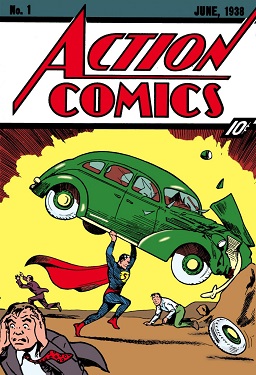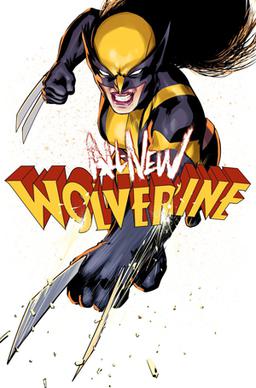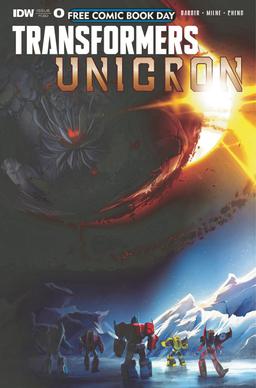
Action Comics is an American comic book/magazine series that introduced Superman, one of the first major superhero characters. The publisher was originally known as Detective Comics Inc., which later merged into National Comics Publications, before taking on its current name of DC Comics. Its original incarnation ran from 1938 to 2011 and stands as one of the longest-running comic books with consecutively numbered issues. The second volume of Action Comics beginning with issue #1 ran from 2011 to 2016. Action Comics returned to its original numbering beginning with issue #957.

Bob Budiansky is an American comic book writer, editor, and penciller, best known for his work on Marvel's Transformers comic. He also created the Marvel character Sleepwalker and wrote all 33 issues of that comic.
Transformers is a media franchise produced by American toy company Hasbro and Japanese toy company Takara Tomy. It primarily follows the heroic Autobots and the villainous Decepticons, two alien robot factions at war that can transform into other forms, such as vehicles and animals. The franchise encompasses toys, animation, comic books, video games and films. As of 2011, it generated more than ¥2 trillion in revenue, making it one of the highest-grossing media franchises of all time.

Simon Christopher Francis Furman is a British comic book writer who is best known for his work on Hasbro's Transformers franchise, starting with writing Marvel's initial comic book to promote the toyline worldwide, as well as foundations for both Dreamwave Production's and IDW Publishing's takes on the Generation 1 minifranchise.
There have been four main publishers of the comic book series bearing the name Transformers based on the toy lines of the same name. The first series was produced by Marvel Comics from 1984 to 1991, which ran for 80 issues and produced four spin-off miniseries. This was followed by a second volume titled Transformers: Generation 2, which ran for 12 issues starting in 1993. The second major series was produced by Dreamwave Productions from 2002 to 2004 with multiple limited series as well, and within multiple story continuities, until the company became bankrupt in 2005. The third and fourth series have been published by IDW Publishing with the third series starting with an issue #0 in October 2005 and a regular series starting in January 2006 to November 2018. The fourth series started in March 2019 with issue #1 and concluded in June 2022. There are also several limited series being produced by IDW as well. Skybound Entertainment began publishing Transformers comics starting in June 2023, kicking off the Energon Universe. In addition to these four main publishers, there have also been several other smaller publishers with varying degrees of success.

Andrew Wildman is a British artist, best known for his work in comics, mainly for Marvel Comics.
Patrick Lee is a Canadian comic book artist, publisher, former president, and co-founder of the now-defunct Dreamwave Productions.
Don Allan Figueroa is a Filipino American comic book artist and toy designer. He is best known for his work on many different Transformers designs, for both the defunct Dreamwave Productions and with IDW Publishing.

The Transformers: Generations is a comic book title, published by IDW Publishing. The series was launched in March 2006 and conceived to be a nine-issue miniseries, but has since become an ongoing title. The series consists of republished editions of the original Marvel Transformers comics, but featuring new cover art by various artists. The series finished at issue 12. However, IDW have continued to reprint older material, including Dreamwave's Transformers: Armada comic in their Transformers Magazine, as well as condensed reprints of the Marvel UK tale Target: 2006. IDW continues to reprint Marvel UK material, beginning with issues focusing on the Dinobots.

The Transformers is a comic book line by IDW Publishing based upon Hasbro's Transformers characters and toy line, featuring many writers and artists across multiple series. It is notable for being the longest continuously running Transformers continuity to date, beginning in October 2005 with The Transformers: Infiltration and ending in November 2018, after the six-issue Unicron event comic. The following year, it would be rebooted and succeeded by a new comic book series on 2019.
Transformers: Beast Wars is the name of several comic book series by IDW Publishing, based upon Hasbro's toy line and the original television series.

The Punisher was a comic book ongoing series published under the MAX imprint of Marvel Comics, featuring vigilante and antihero the Punisher.
Transformers: Beast Wars is an entertainment franchise from Hasbro and is part of the larger Transformers franchise. The franchise directly follows the Transformers: Generation 1 continuity established by the 1984 series and animated film. It ignores the continuity established by the Japanese Transformers series, though this franchise would have two exclusive Japanese series of its own. Before Beast Wars, Hasbro had attempted to relaunch the original toys and animation as Transformers: Generation 2. Hasbro intended another franchise titled Transtech to follow which would've combined Beast Wars and Generation 1 characters and aesthetics, but this was canceled. Instead, the franchise began a series of reboots, beginning with the Japanese-produced Transformers: Car Robot series, internationally known as Transformers: Robots in Disguise.
Dreamwave Productions was a Canadian art design studio and comic book publisher founded in 1996. Best known for its comic book adaptations of Transformers, the company shut down on January 4, 2005.

All-New Wolverine is a comic book series published by Marvel Comics that ran between 2015 and 2018 as part of the All-New, All-Different Marvel relaunch. The series was the first to star Logan's clone Laura Kinney in the role as Wolverine. The plot introduces Laura's clone sisters, the youngest of which, Gabby, ends up becoming her companion during their adventures.

Transformers: Lost Light is an American science fiction / action-adventure comic book written by James Roberts and published by IDW Publishing, taking place in their Transformers universe. Lost Light acts as a sequel to The Transformers: More than Meets the Eye which was published from 2012 to 2016, also written by Roberts. Following the "Revolution" event which integrated numerous of Hasbro's franchises into the Hasbro Comic Book Universe, including Transformers, More than Meets the Eye ended with #57 and was continued with Lost Light from December 2016 to November 2018.

The Hasbro Comic Book Universe (HCBU) is an American comic book franchise and shared universe created and published by IDW Publishing, based on various properties of the toy company Hasbro.

Transformers: Unicron is a science fiction comic book limited series presented by IDW Publishing, in collaboration with Hasbro. The series is being written by John Barber, with art from penciller Alex Milne and colorist Sebastian Cheng. Issue #0 was published during Free Comic Book Day before running from July to October 2018, featuring references in Optimus Prime and Transformers: Lost Light.











